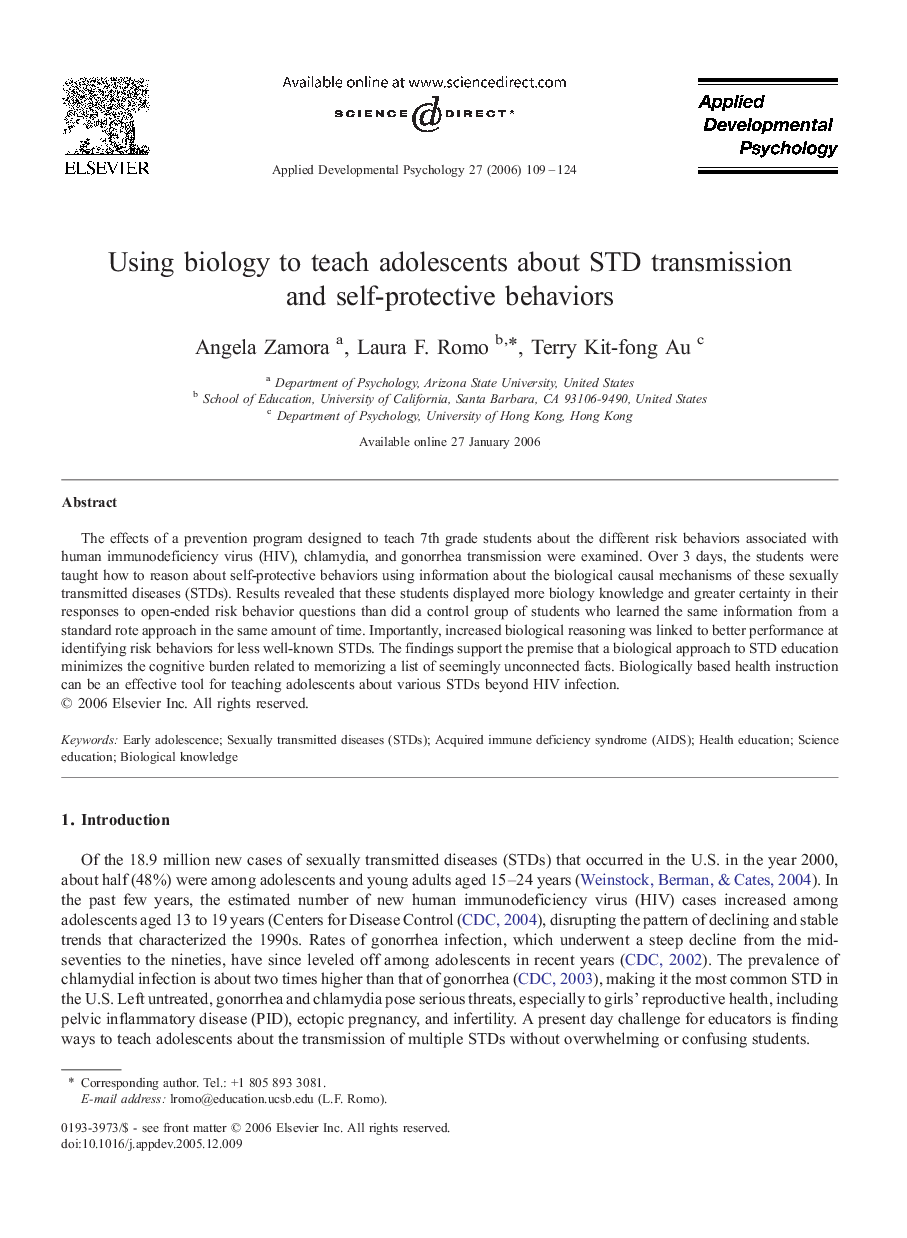| Article ID | Journal | Published Year | Pages | File Type |
|---|---|---|---|---|
| 360120 | Journal of Applied Developmental Psychology | 2006 | 16 Pages |
The effects of a prevention program designed to teach 7th grade students about the different risk behaviors associated with human immunodeficiency virus (HIV), chlamydia, and gonorrhea transmission were examined. Over 3 days, the students were taught how to reason about self-protective behaviors using information about the biological causal mechanisms of these sexually transmitted diseases (STDs). Results revealed that these students displayed more biology knowledge and greater certainty in their responses to open-ended risk behavior questions than did a control group of students who learned the same information from a standard rote approach in the same amount of time. Importantly, increased biological reasoning was linked to better performance at identifying risk behaviors for less well-known STDs. The findings support the premise that a biological approach to STD education minimizes the cognitive burden related to memorizing a list of seemingly unconnected facts. Biologically based health instruction can be an effective tool for teaching adolescents about various STDs beyond HIV infection.
